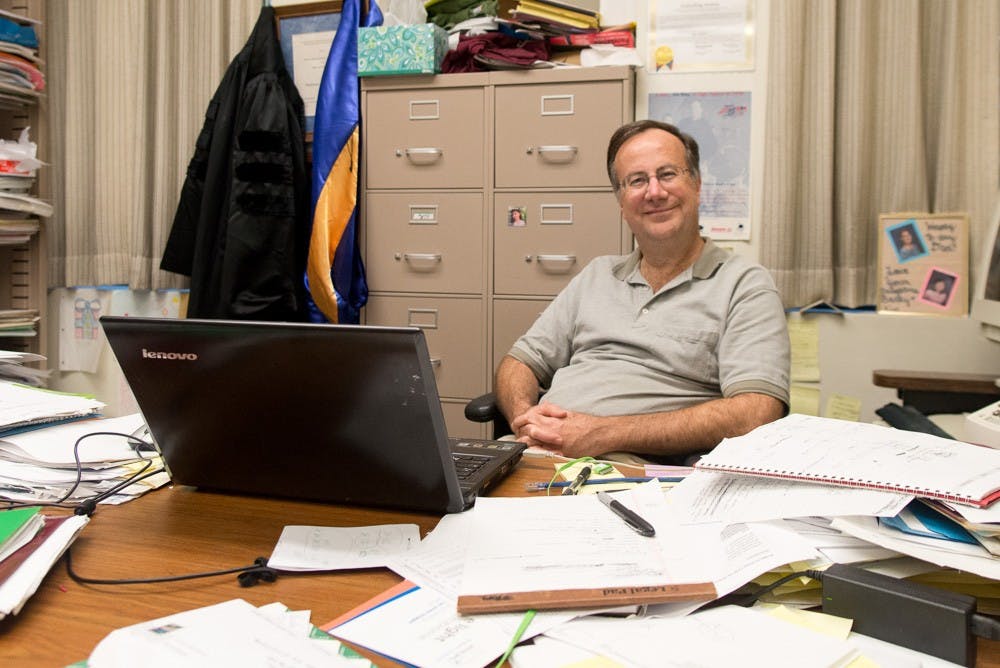One in every 68 children develops Autism Spectrum Disorder. Engineering professor and president of the Autism Society of Greater Phoenix, James Adams, uses his personal life experiences to bring treatments and support to these families through his autism research program.
Doctors diagnosed Adams' daughter with severe ASD in 1994. As of today, there are still no FDA approved medications for treating symptoms of ASD. Frustrated by the lack of information regarding the causes and how to prevent it, Adams created the ASU research program in 2000.
“When we were told that she was diagnosed, we were told that it would be a life-long disorder and that she would probably never be able to live independently or work and probably be institutionalized,” Adams said. “That motivated us to try and find all the treatments we could to help her and also led to me doing research.”
At ASU, more than 100 enrolled students are on the autism spectrum. Adams and his team of students, doctors, nurses and psychologists focus on finding treatments to diminish autistic behaviors, specifically through nutritional interventions.
One of Adams' first studies questioned the effect of a vitamin mineral supplement for autistic children. After creating a customized supplement and deeming it beneficial, large clinical trials further proved its assistance for 85 percent of children and adults with ASD. Prior to officially testing the mineral, Adams gave his daughter to test how the supplement improved behavior.
“Even though she has finished high school, she’s functioning at about a second to third grade level academically,” Adams said. “But, she’s able to work and she’s lost a number of autism symptoms. Her behaviors are overall reasonable and she’s a very happy woman.”
This discovery led Adams to found The Autism Nutrition Research Center that markets the vitamin mineral supplements, allowing families to take advantage of the program's findings.
While finding treatments to correct autistic behavior is worthwhile, Adams’ team also hopes to understand how to prevent autism in the first place, starting with conception. The team discovered that if a woman becomes pregnant and takes a prenatal supplement within a month of conception, she reduces the risk of having a child with ASD by 40 percent. However, most women wait at least two months to start a prenatal, defeating the purpose.
“It’s very simple, but most people don’t know it and don’t follow it,” Adams said. “We’re trying really hard to get the word out that taking a prenatal within a month of conception, or even better, before conception will decrease the risk of having a child with autism.”
In addition to these successful studies, Adams enlists the help of civil and environmental engineering associate professor Rosa Krajmalnik-Brown as they currently study the correlation between autism and bad bacteria in the gut.
“When I work with Jim on this, we discuss what we want to investigate, what is the question we want to answer, which is our scientific hypothesis,” Krajmalnik-Brown said. “After we have discussed this, we see which methods we have available to evaluate our hypothesis.”
Through each of Adams’ studies, his assistant and research study coordinator, Devon Dale, noted a similarity that inspired her.
“I have noticed how dedicated to this cause he is,” Dale said. “This isn’t just a job to him. This research and this cause is his passion and anyone who interacts with him can see it.
Related Links:
ASU students learn about autism during Well Devils Week
Club helps students' social struggles with autism
Reach the reporter at ncorr@asu.edu or follow @natalieorr19
Like The State Press on Facebook and follow @statepress on Twitter.




